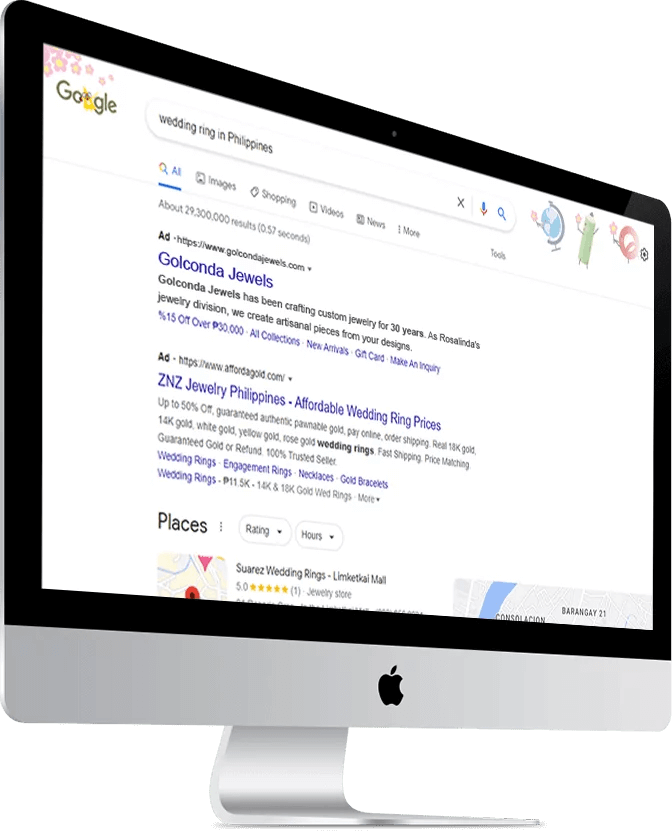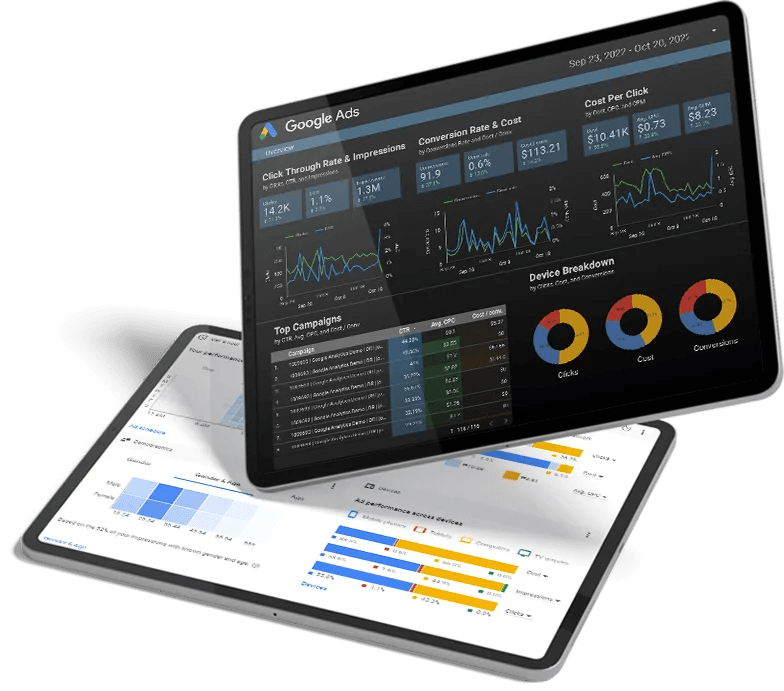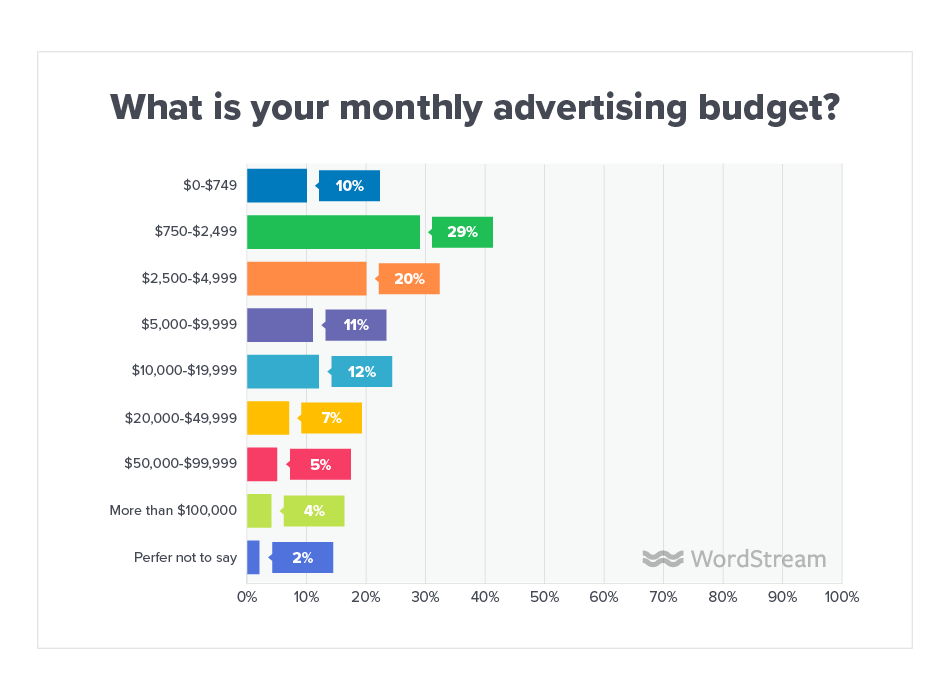Pay-Per-Click Tests can be integral to achieving more online visibility with the ideal audience at the perfect time. So, marketers should know if, when, and how a test has failed. If your Paid Advertisement Campaign isn’t going well, you can take steps to turn the campaign around. A PPC Test can help marketers see how their campaigns will fare.
For a given fee, PPC Advertising can generate leads, resulting in improved conversions, and finally boosted sales. Thriving Pay-Per-Click Ad Campaigns will reap rewards aplenty, but failed PPC Tests cannot. As a result, they have to be reworked or even halted entirely.
Thus, it’s vital for you to be able to tell apart a thriving PPC Test from a failing one. In addition, every Paid Ads Marketer should know how to achieve campaign success.
How To Understand If A PPC Test Is A Failure
Businesses tend to make common mistakes that cause their campaigns to fail. However, it’s vital that PPC Marketers have all the necessary knowledge and tools to ensure a campaign flourishes. This includes targeting the right keywords using SEO Knowledge, Customer Information, and searcher intent.

A marketer can learn much from expert guides, but every now and then you may have issues with campaigns. There are a few signs that indicate a PPC Test is a failure:
- It doesn’t spend after over five days of activity;
- Conversions don’t lead to qualified leads and sales;
- The spend is much higher than the usual pacing; and
- Tested variables result in worse outcomes compared to control variables.
Here’s how a PPC Expert can can measure success or failure:
Set Up Grounded PPC Tests
Naturally, before starting a test, you must set up metrics to indicate success or failure. So, it’s vital to set solid foundations, including using trustworthy Conversion Trackers and having a reliable team of PPC Experts. With their help, you’ll be able to execute your PPC Tests. As a result, your Paid Ads performance will reflect true success.
In addition, PPC Marketers must only test a single variable for each test, otherwise the results might get complicated. It won’t be clear whether the variable has a positive or negative effect on a campaign.
Lastly, ad distribution channels have their own learning periods. For instance, Paid Ads Specialists should keep in mind that Google Ads’ learning period is at least five days, and Facebook or Meta Ads requires users to meet a conversion threshold.

Source: Social Media Examiner.
Defining Successes And Failures
Once you’ve prepared your solid foundations, you can settle on what constitutes success and failure. To shed some light on how they can help, here are a few examples:
Variables for New Channels
Have you already begun your campaigns or are you new to the Paid Marketing game? For newcomers, you need to test the following channel variables for at least 60 days:
- Channel ease of maintenance, including resources needed to create and maintain ad campaigns.
- The market value, or whether the channel is entirely new or has existing customers.
- Channel budget and whether or not you have an ample amount.
- Whether or not your Target Audience is on the channel.
Keep an eye on these, and if you find any signs or indicators that the PPC Test is a failure, feel free to make the necessary adjustments.
Variables for Conversion Rate Optimization
What if you have Paid Advertising experience and want to better your campaign’s Conversion Rates? When testing variables for CRO, specialists tend to look at how the following are performing:
- Landing Pages and their user engagement.
- Advertisements and their Click-Through Rates to Conversion Rates ratio.
- Audience Targeting Choices and how well they match your intended audience.

Variables for Return On Ad Spend
So now let’s say you’re aiming for a better ROAS. Your PPC Tests will examine these choices:
- The auction price and the quality of Return on Investment it produces.
- User Journey and its resulting conversion value.
- Creative, and how well it helps pre-qualify customers.
However, even if you do test out the right variables, they may not produce the results you expected. To ensure your Paid Advertising campaigns result in stellar CTRs or ROI, you need to be wary of the many reasons for campaign failures. As a result, you can create foolproof plans for your PPC budget and strategies.
Excellent Ways to Achieve PPC Campaign Success
Be Strict with Your Keywords
From a pool of 1,000 companies that utilized Conversion Tracking, “just 9%” of a Google Ads account’s keywords are responsible for all its conversions on average. Since only a few keywords can lead to your most successful sales, search terms that don’t contribute to success waste effort and resources.
Paid Ads Specialists must utilize their PPC Marketing budget wisely. Thus, they must select the most vital, high-performing keywords for campaigns.
Here’s how you can make the most of your ad spend:
- Avoid broad match keywords. Paid Ads Marketers mustn’t bid on broad-match keywords, as they produce low CTRs to your business website. Instead, you must use exact match keywords. which offer the best Conversion Rates!
- Eliminate unnecessary keywords. You must filter out keywords that haven’t made any positive strides toward your campaigns. It’s vital to eliminate the ones that haven’t produced any results in the last three to six months. Even if they offer zero conversions, your branded keywords get a free pass.
- Double down on valued keywords. Once only the most crucial keywords remain, double your spending on the ones that matter.
Ensure Your Ad Copy is Snappy and Matches Your Landing Pages

Source: Muck Rack.
Nowadays, people have limited attention spans, meaning you have a small window of time to convince people to click on your advertisement. To avoid peoples’ eyes sliding off your PPC Ad, make sure to prominently spell out your Unique Selling Proposition — especially in your headline.
Your ad copy should also account for user search intent. Speaking your target audience’s language is key to boosting your CTR! Once you’ve got the voice down, you must share your products’ or services’ benefits. However, take care not to oversell your product and promise various offers you can’t deliver on later.
It’s best for PPC Marketers to redirect their ideal audience to a dedicated Landing Page rather than a homepage. A homepage contains various elements that may detract people from their original intent. On the other hand, a Landing Page is perfect for helping them along their customer journey.
Thus, PPC Experts should take care to match ad headlines with those of your Landing Pages. It makes their progression from ad to Landing Page more seamless. In addition, you must utilize relevant keywords in your ad copy.
Make Sure You Have an Ample PPC Budget
For instance, newcomer marketers tend to bid low, but this doesn’t always provide high ROI. Of course, Paid Ads Specialists can always find the perfect budget via PPC Tests.

Source: WordStream.
A Paid Marketing team shouldn’t be afraid of increasing its initial bids to test how strong its strategies are. After all, testing is necessary to find the right campaign keywords and copy. The same is true for your budget.
So don’t bid too low! Rather, increase your budget as you continue your Paid Ads efforts. As a result, you can maintain an excellent quality score, boost your ad positions, and gain more clicks.
Utilize a PPC Test Today!
Testing Pay-Per-Click Advertisements is a key PPC Trend that marketers should take advantage of. PPC Tests can help you examine certain variables for later campaigns. These variables can differ depending on whether you want more conversions or more revenue.
With them, you can avoid a budget drain while preserving (and increasing) your quality score.
However, there are common indicators for failed PPC Tests, such as not spending after five days of activity, not leading to sales, etc. If you notice any of these, you’ll have to utilize several methods to remedy your failing campaigns. These can range from culling keywords to matching ad copy with Landing Page copy, and even using an ample budget.

